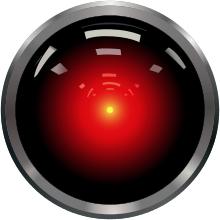The Status Quo of understanding AI
The one-day DocVille conference that takes place every year - usually in Brussels - is a meeting of ECM and Capture technology suppliers as well as (very few) end customers. The format is simple: a keynote at the start, 4-5 discussion table sessions and networking all through the day.
As a change from the previous years, AI was a topic at not one but two of the table sessions (up from zero the previous year).
The headline of the session I attended read "Integrating AI as a service (AIaaS) into ECM – From IDR to NLP & Conversational Chatbots" - wow, now that's a pretty demanding topic.
Interestingly enough, a good portion of the discussion time was needed to define what AI is - even the moderator seemed to diverge from the definition you'll find on Wikipedia by suggesting that his company has produced an AI that requires as little as 250 sample documents to do a classification… if you understand the technical details of what the scientific community calls AI, you'll realized right away that a neural net with 250 samples to work with isn't going to do a very good job of pattern recognition - more likely than not, we're talking about statistical analysis of either semantic or graphical content here, but it is an indicator of the status quo of AI-awareness.
The term "AI" has a lot of marketing pull right now - I clearly remember being at the VOI community stand at CeBIT in the mid-90's where every second piece of signage screamed "XML" at you. If you then talked to the people in the booth what XML meant to them, for their products and - more importantly, for their customers, most couldn't formulate a convincing answer.
I'm quite afraid that a very similar thing is happening right now with AI. Any tech product that doesn't have AI in it may be seen as less worthy in the eyes of consumers or professional buyers… so you better put AI in the spec sheet somewhere, even if the AI piece is really nothing more than a statistical analysis engine!
It also means that organizations geared to educate the public on AI aren't doing enough to get the word out. The speculations that flew around the table in the first five minutes clearly showed that people are putting together fragments of supposed knowledge to generate a picture of AI that is - for the most part - wildly deviating from fact.
